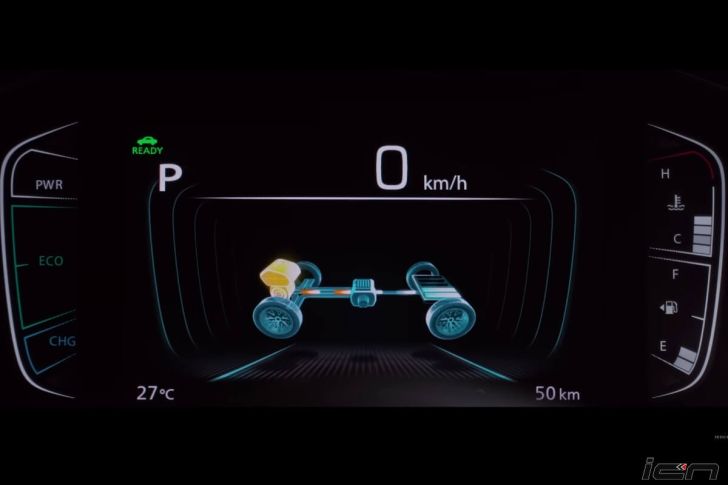Texas Weighs Ban On Minors' Social Media: A Closer Look

Table of Contents
The Proposed Legislation: Details and Scope
The specifics of the proposed Texas social media ban for minors are still evolving, but the general aim is to restrict access to major social media platforms for individuals below a certain age. While the exact age limit remains to be finalized (with suggestions ranging from 16 to 18), the legislation aims to address concerns about the impact of social media on the mental health and well-being of young Texans. The bill's scope likely includes popular platforms like TikTok, Instagram, Facebook, Snapchat, and potentially others.
- Specific age restrictions: The precise age limit is currently under debate, with proposals ranging from 16 to 18 years old.
- Platforms targeted: The ban would likely encompass major social media platforms with significant user bases among teenagers. The exact list of prohibited platforms will be defined in the final legislation.
- Proposed penalties: Potential penalties for non-compliance could include fines levied against social media companies for allowing minors to access their platforms, and potentially penalties for parents who fail to prevent their children's use.
- Exemptions or exceptions: The possibility of exceptions for educational or therapeutic uses of social media is currently being considered, but the details remain unclear.
For the most up-to-date information on the proposed bill, refer to the Texas Legislature's website [insert link here] and relevant news sources [insert links here].
Arguments in Favor of the Ban: Protecting Minors Online
Proponents of the Texas social media ban for minors argue that it's a necessary step to protect young people from the potential harms associated with social media use. Their arguments center around safeguarding children's mental health, safety, and well-being.
- Reduced exposure to cyberbullying and online harassment: Social media can be a breeding ground for cyberbullying, leading to significant emotional distress and even suicidal ideation among young users. A ban could significantly mitigate this risk.
- Protection from harmful content: Minors are often exposed to inappropriate content, including violence, hate speech, and sexually explicit material, on social media. The ban aims to limit this exposure.
- Improved mental health: Research suggests a correlation between excessive social media use and increased rates of anxiety, depression, and body image issues among adolescents. Limiting access could positively impact mental well-being.
- Increased focus on offline activities: Proponents believe a ban could encourage healthier offline activities, strengthening relationships and fostering real-world social skills.
- Addressing concerns about data privacy and exploitation: Social media platforms collect vast amounts of user data, raising concerns about privacy and the potential for exploitation of minors.
Numerous studies support the link between social media use and negative mental health outcomes in adolescents. [Insert links to relevant studies here].
Arguments Against the Ban: Freedom of Speech and Practical Challenges
Opponents of the Texas social media ban for minors raise significant concerns about its practicality and potential infringement on fundamental rights.
- Infringement on freedom of speech: Critics argue that the ban constitutes a violation of free speech principles, restricting minors' access to online communication and expression.
- Difficulty in enforcing the ban: Monitoring compliance and preventing minors from circumventing the ban through VPNs or other means will prove extremely challenging.
- Potential for increased use of VPNs and other circumvention methods: A ban might simply drive underage users to seek out less regulated and potentially more dangerous online environments.
- Impact on educational and social opportunities: Social media can be valuable for education and social interaction; a ban could limit access to crucial learning resources and social connections.
- Concerns about the development of digital literacy skills: Restricting access might hinder the development of essential digital literacy skills necessary for navigating the modern digital world.
The debate highlights the tension between protecting minors and upholding fundamental rights in the digital age. [Insert links to articles expressing opposing viewpoints].
International Comparisons and Best Practices
Many countries grapple with similar challenges concerning minors and social media. Examining international approaches offers valuable insights.
- Age verification methods: Some countries employ stricter age verification methods for social media accounts, but their effectiveness varies.
- Parental control tools: Promoting the use of parental control tools and educational programs focused on responsible social media use can be more effective than outright bans.
- Regulations on data privacy for minors: Strong data privacy regulations can protect minors' information without restricting access entirely.
Examining successful strategies in other jurisdictions can inform the development of more effective and balanced approaches in Texas. [Insert examples of different approaches and their effectiveness from other countries or states].
The Future of Social Media Regulation in Texas
The proposed legislation's trajectory is uncertain. Amendments and modifications are likely before any final version is enacted. The long-term implications for social media use by minors in Texas remain to be seen. This debate will likely shape future social media regulation not just in Texas but potentially across the United States, highlighting the ongoing evolution of online safety and digital citizenship for young people.
Conclusion
The proposed Texas social media ban for minors is a multifaceted issue with profound implications for children's well-being, online safety, and freedom of expression. This article has explored the arguments for and against the ban, highlighting its potential benefits and drawbacks. While protecting children online is paramount, the debate underscores the challenges of balancing safety with individual liberties in the digital age.
Call to Action: Stay informed about the progress of this crucial legislation. Learn more about the Texas social media ban for minors and participate in the ongoing discussion to ensure a responsible and balanced approach to online safety for young people. Your voice matters in shaping the future of digital citizenship for Texas youth.

Featured Posts
-
 Mourinho Tadic Ve Dzeko Yu Nasil Degerlendiriyor
May 20, 2025
Mourinho Tadic Ve Dzeko Yu Nasil Degerlendiriyor
May 20, 2025 -
 Eksereynontas To Oropedio Evdomos Tin Protomagia Pliris Odigos
May 20, 2025
Eksereynontas To Oropedio Evdomos Tin Protomagia Pliris Odigos
May 20, 2025 -
 Dzhenifr Lorns Radostna Novina Otnovo E Mayka
May 20, 2025
Dzhenifr Lorns Radostna Novina Otnovo E Mayka
May 20, 2025 -
 Friis Inleder Med Bortaseger Tuff Kamp Mot Malta
May 20, 2025
Friis Inleder Med Bortaseger Tuff Kamp Mot Malta
May 20, 2025 -
 Huuhkajat Kaksikko Kaellman Ja Hoskonen Palaavat Kotiin
May 20, 2025
Huuhkajat Kaksikko Kaellman Ja Hoskonen Palaavat Kotiin
May 20, 2025
